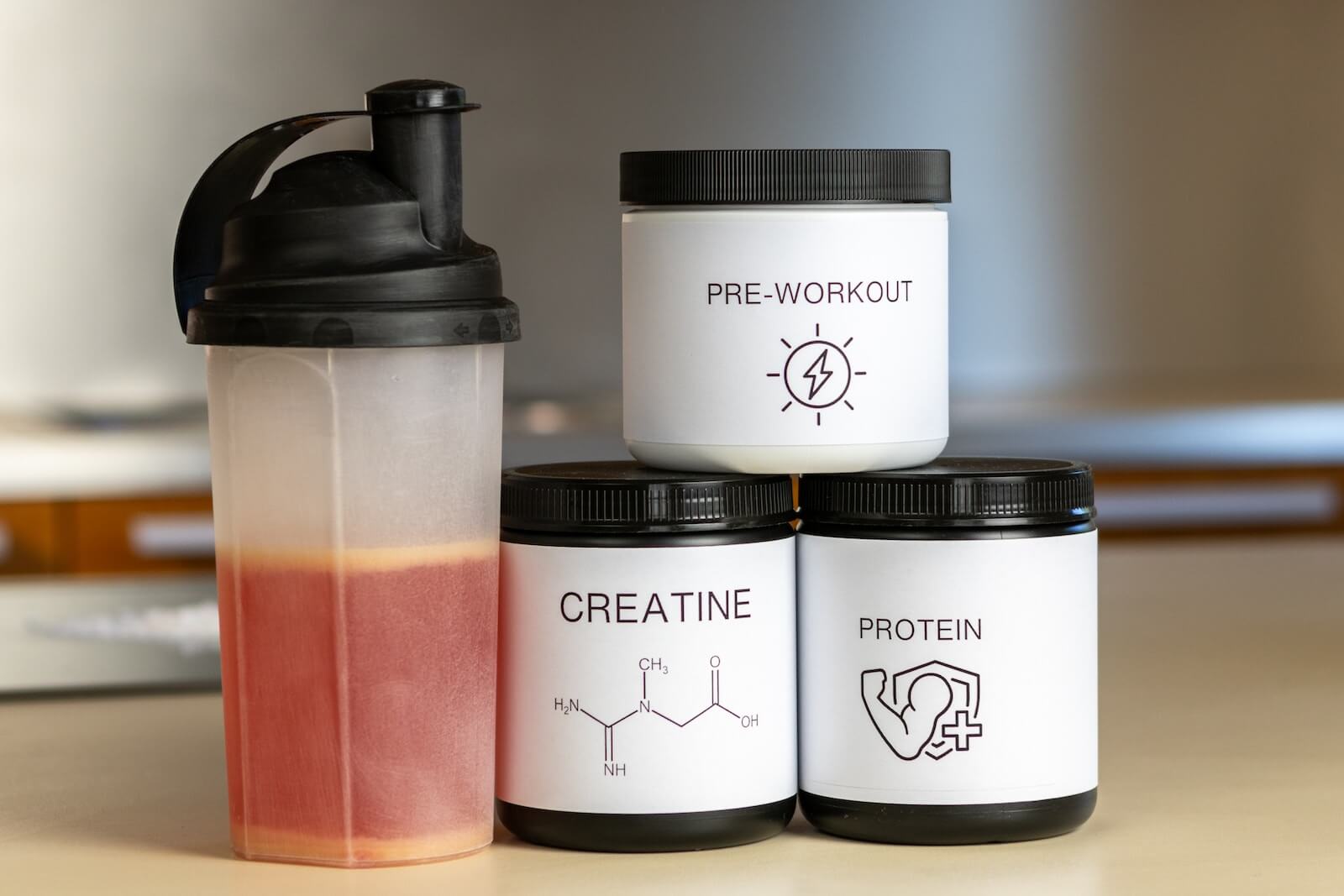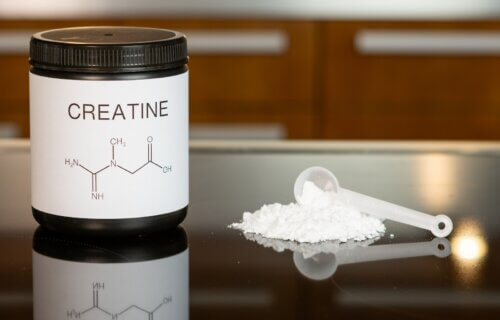Athletes swear by creatine for improving exercise performance. Chances are, it’s inside the bottles that you see them shaking at the gym. So, is it the really the missing piece for your fitness routine?
Creatine is a substance that your liver makes on its own before it gets stored in the muscles. The compound helps to make ATP, our body’s energy source. Tons of mechanisms are involved in the production of ATP, but creatine specifically aids the production during high-intensity workouts.
Why use creatine?
There are many high-creatine foods, like red meat, chicken, and salmon. However, many serious athletes will choose to supplement it in its isolated form in order to improve their workout performance, gain muscle, and strengthen their bodies overall. So, should the average person who just wants to stay fit also use it?
Honestly, unless you are a power athlete or vegan, creatine is unlikely to add much to your overall health. Vegans have been shown to have less creatine stores in their bodies. For most people, about half of the body’s creatine stores come from food, with the remainder produced from amino acids in the liver and kidneys.
For most people, feeling and noticing the benefit can take place in two weeks or maybe even less. For best absorption, it’s advised to take the supplement with a meal that is primarily carb or protein-based.

There are different forms of creatine
Not all creatine is created equal. Here’s the breakdown:
Creatine monohydrate
This is the most well-studied and widely used form. This is considered the best one to use.
Creatine Ethyl Ester
Some evidence suggests that the absorption of this form is greater than monohydrate, but others have shown the complete opposite. This is why it hasn’t overtaken monohydrate for the top spot.
Creatine Hydrochloride
Given the hydrochloride component, this form is very soluble in water. However, there still isn’t enough research to show that it is absorbed as effectively as monohydrate.
Buffered creatine
Some manufacturers have tried to make creatine more stable by adding an alkaline powder to create a buffer. This could possibly mean that the creatine is more potent in this form. There aren’t enough studies on this form to draw solid conclusions, however.
Liquid creatine
Most creatine you find will be in powder, but there are liquid varieties. This can be a convenient way to go, but studies have shown that these products can break down quicker and not be that effective.
Creatine magnesium chelate
Magnesium is attached to creatine in this form, and some studies suggest that this form is as effective as monohydrate in improving workout performance.
What are the main benefits of using creatine?
By now, we’ve established that creatine can help gain muscle. Here’s how it does that specifically:
- Creatine enhances cell signaling to support muscle repair.
- It helps hydrate your cells and draws water into your muscles.
- It also lowers myostatin levels. Myostatin is a negative regulator of muscle growth, meaning that as levels decrease, muscle growth potential increases.
Is creatine safe?
You might have heard that creatine can lead to dehydration and cramping. However, the supplement is one of the most well-studied out there, with over 1,000 being conducted. Findings show that for most people, creatine is a safe supplement and does not harm the liver or kidneys. It’s still important to check with your medical provider to make sure there aren’t any contraindications for your unique situation.
Bottom Line
Creatine is supportive of the muscles and exercise performance. It likely isn’t necessary if you eat a variety of high-protein foods already rich in it. However, the supplement is affordable and overall not risky to take, so it couldn’t hurt to try it if you are interested in it. Again, the gold standard form is creatine monohydrate.

